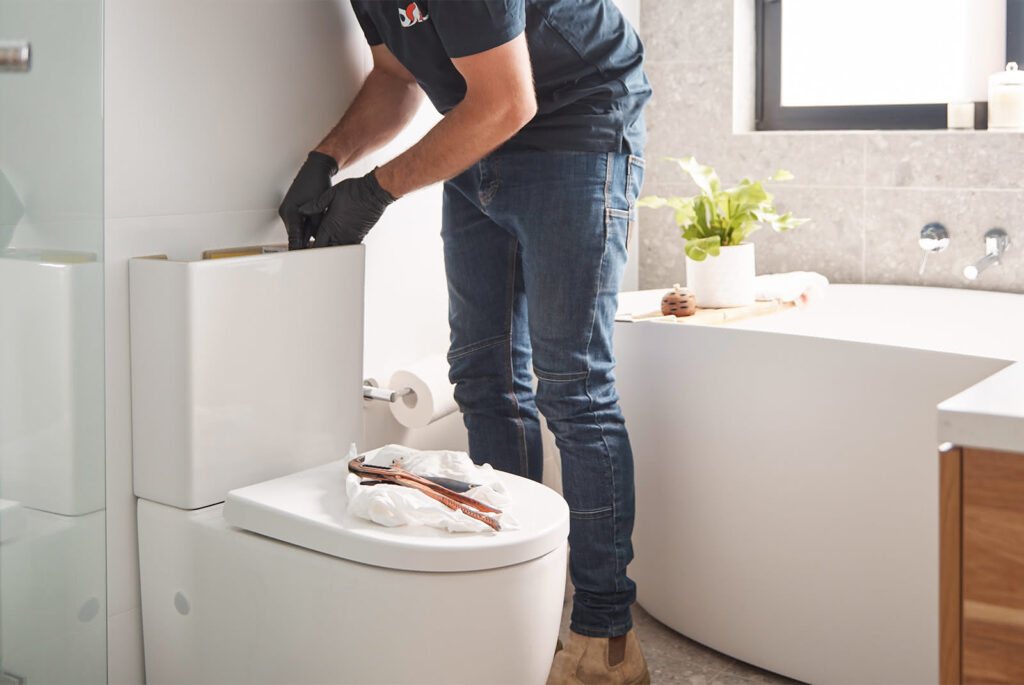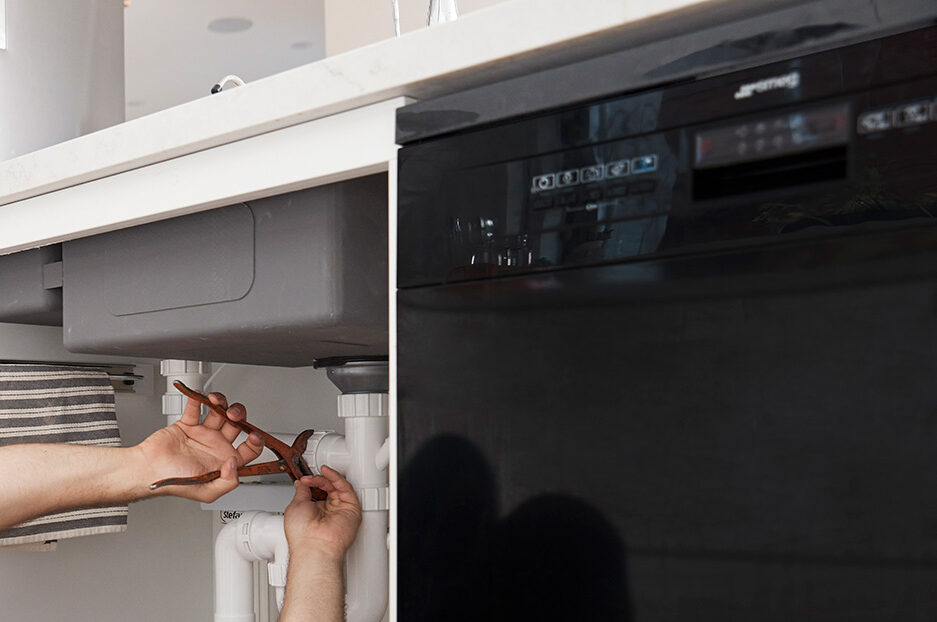
Open 24/7! Servicing all of Sydney’s Eastern Suburbs
Our Average Response time is: 1hr 53min 47sec
Buying a home is one of our most exciting milestones here in Australia, but overlooking plumbing issues leads new homeowners to expensive repairs down the road. It happens more often than you expect. As such, a thorough plumbing inspection helps you catch any hidden issues before they turn into major headaches.
You can use this checklist to guide you through key areas to inspect and update your new home to ensure peace of mind that your new home is operating in its optimal state as you embark on a new chapter.
A plumbing inspection is a thorough check of your home’s pipes, fixtures, and water systems for any issues. These could be leaks, blockages, or potential bigger problems. It helps ensure your plumbing is working properly, as well as prevent unwanted repairs down the line.
A thorough plumbing inspection helps keep your home safe, fully operational, and cost-effective by identifying potential issues early.
Key Benefits:
Small plumbing issues can quickly escalate if left unchecked, which can lead to repairs and even potential water damage and health issues for your home.

What to Look For:
By addressing these issues early, you can nip the issues in the bud and keep your home's plumbing running smoothly.
Water damage can be one of the most expensive issues homeowners face, but early detection can prevent major headaches. Fixing small leaks before they worsen saves you from costly repairs, such as preventing water and structural damage. This is because undetected leaks can weaken walls, ceilings, and foundations over time.
On the health front, you can reduce toxic mould risk. Excess moisture from hidden leaks creates the perfect environment for black mould growth which can damage your health, especially if you have respiratory problems.
Safety first. A plumbing inspection can also help your home safe for you and your family. Contaminants, rust, or sediment can affect water quality. A good plumber will detect this and help maintain water purity.
Additionally, identifying hidden leaks or water that causes stagnant moisture which leads to bacterial growth and compromises your water supply.
They can also check your water heater to ensure it operates efficiently, providing consistent hot water without leaks or buildup. Professional plumbing inspections ensure your plumbing system delivers safe, high-quality water for everyday use.
Ideally, a plumbing inspection should be done before buying a home. An inspection can reveal hidden issues which can then help with price negotiations, potentially securing your home for a better price.
If you do not inspect before purchasing, however, after moving in, checking the plumbing system ensures everything is in good working order before you move in.
Here's how to go about it.
Assessing the plumbing system is essential for identifying potential problems to avoid costly repairs.
Start by examining the pipes, water heater, and septic tank to determine their age and overall condition.
Look for any signs of leaks or water damage, which could indicate underlying issues that need immediate attention.
Evaluating the plumbing system ensures everything is functioning properly and efficiently. Testing water pressure and flow rate can reveal irregularities that may indicate blockages or pipe damage. Additionally, identifying outdated or inefficient fixtures and appliances can help improve water conservation and reduce utility costs.
Scheduling regular plumbing inspections is essential for catching potential issues early and avoiding expensive repairs. By monitoring the plumbing system for visible signs of wear, leaks, or damage, homeowners can address minor concerns before they escalate into major problems. Proactive maintenance helps ensure the longevity and efficiency of your plumbing system, saving time and money in the long run while preventing unexpected disruptions.
While DIY plumbing inspections can help spot basic issues, they often miss deeper problems requiring a professional eye. A professional plumber knows what to look for and uses advanced tools to identify hidden issues. A plumber’s knowledge can save you money and prevent bigger problems from escalating into costly repairs down the line.
Here are a set of questions to guide you when hiring a plumber.
What Is the Age of Plumbing Components?
Ask a plumber to check the age and condition of your pipes, water heater, and septic tank and to see if any components need replacing.
Are There Any Signs of Water Damage or Leaks?
Have a plumber inspect for water damage or leaks and identify their cause to avoid further damage.
Are the Water Heater and Septic System Functioning Properly?
Ensure your plumber checks the water heater and septic system to verify they’re operating efficiently and correctly.
For a thorough inspection, here’s your plumbing inspection checklist to assess the key areas to ensure an efficient plumbing system. Do not be afraid to check this list off with your plumbing inspector.
Faucets & Fixtures
Look for leaks, and mineral buildup, loose fittings and check aerators for blockages to ensure water flow.
Drains & Waste Lines
Examine for slow drainage, blockages in P-traps, and overall performance of drainpipes.
Water Heater
Inspect for leaks, and corrosion, and verify the temperature/pressure relief valve.
Toilets
Check for leaks, mineral buildup, and ensure flappers and fill valves are clear.
Showers & Bathtubs
Look for leaks, blockages in drains and loose fittings and assess their overall functionality.
Sump Pump
Ensure it’s free of leaks, and corrosion, and test the float switch/alarm.
Septic System
Inspect sewer and drainage lines for leaks, blockages, the main sewer lines and overall sewer pipes system functionality.
Shut-Off Valves
Check for leaks, and corrosion, and confirm proper valve operation.
Outdoor Plumbing system
Inspect for leaks, and corrosion, and ensure all spigots and connections work well.
Water Softener
Check for leaks, corrosion, and salt levels to ensure efficient operation.
Filtration Systems
Ensure there are no leaks, clean filters, and overall system efficiency.
Safety Tips
Know how to inspect safely, detect damage, and address any issues.
Look out for common telltale signs of plumbing problems, such as:
Water Stains & Mineral Build-Up
Water stains or hard water deposits may be a sign of leaks or blocked pipes. Address these early to prevent further damage.
Low Water Pressure
Do you have low or fluctuating water pressure? This could signal blockages or pipe issues. You'll want to investigate and fix these issues quickly.
Strange Noises & Odours
Another telltale sign of larger problems in your plumbing system is unusual sounds like clanking or unpleasant smells. Have these investigated as soon as possible.

The main things to prepare for are knowing what to expect during an inspection, how to find the right plumber, and what to do before they arrive.
What to Expect During the Inspection
The plumber will assess the plumbing system, evaluate water pressure, test for leaks, and identify any issues. Then, they may suggest necessary repairs and provide you with an obligation-free quote for your consideration.
How to Find a Reputable Inspector
Research potential plumbers, check reviews, and ask for recommendations from friends and family. Compare credentials and certifications to ensure you're hiring a qualified professional.
What to Do Before the Inspection Day
Just ensure that all areas requiring inspection are accessible. Clear any clutter around plumbing fixtures and check that the water supply and valves are operational. Additionally, choose a time when water supply demand is low, i.e. not when your whole family takes their showers in the morning before work and school.
How to Create a Plumbing Maintenance Schedule
You can use a physical calendar or one on your phone. We recommend a phone calendar app because then you can set reminders. Aim for a minimum of one plumbing inspection and maintenance annually to keep your system running in an optimal state.
Here are a few tips to get the most out of your plumbing inspection.
How to Ensure a Thorough Plumbing Inspection
Do not be afraid to share this checklist with your plumber and ask them to check every item off the list.
How to Address Any Issues Found During the Inspection
If there are multiple issues in your plumbing inspection and your budget doesn't allow for all of them to be addressed at once, ask your plumber which maintenance tasks to prioritise and go from there.
For new homeowners, a plumbing inspection is a wise step in protecting your investment. It helps uncover hidden issues, ensures your plumbing system is in top shape, and prevents unexpected, costly repairs down the line.
Remember, regular plumbing inspections can save you time and money. Keep an eye out for leaks, monitor water pressure, and schedule routine inspections to avoid unexpected problems.
Need a Reliable Plumber?
For expert plumbing services or professional advice on the plumbing systems in your new home, contact Plumberoo today for a reliable, efficient service.